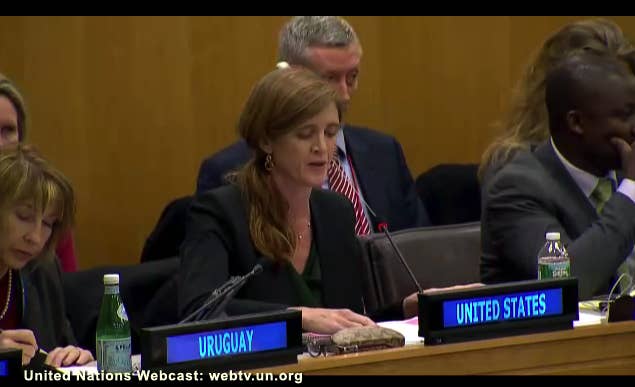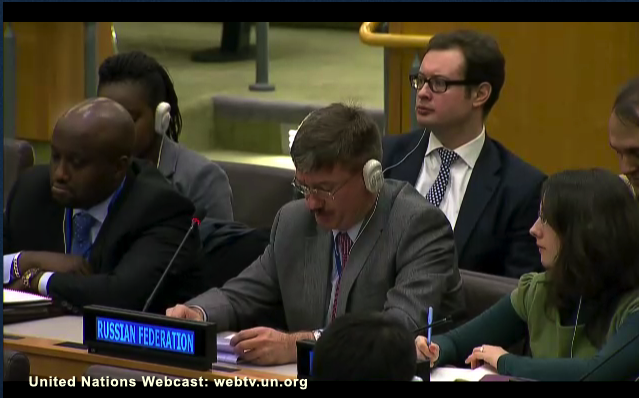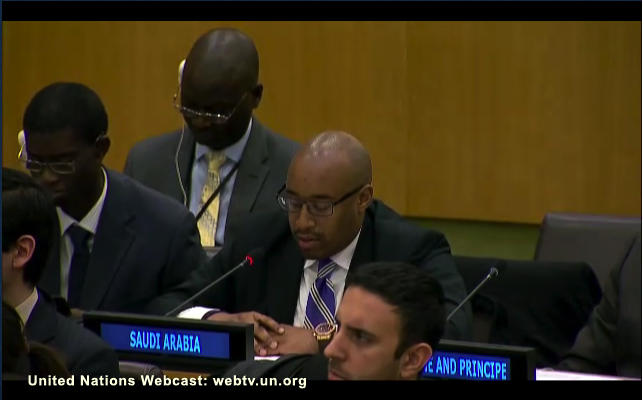
WASHINGTON — A Russian proposal to cut benefits to the spouses of some LGBT employees at the United Nations failed Tuesday morning in a vote that was far less close than opponents of the draft had feared.
Russia had brought the vote at the Fifth Committee of the General Assembly, which handles administrative and budgetary affairs, to consider the question of whether U.N. Secretary-General Ban Ki-Moon overstepped his authority in expanding the number of employees eligible for benefits for their same-sex spouse. The Russian draft was rejected with 43 votes in favor to 80 opposed and 37 abstentions.
Last year, Ban issued a bulletin — an official statement of policy in how the U.N. would conduct internal affairs — that Russia was seeking to overturn. Previously, that resource was only extended to employees who hailed from a country where that union was recognized, giving an effective veto to states who disagreed with the policy. Under the new bulletin, all same-sex couples married in a place where it was legal would have their union recognized. Russia's draft resolution would have forced the U.N. to return to the former rules.
In the lead-up to the vote, Western delegations were worried that it was, in the words of one diplomat, "too close to call." The vast majority of countries speaking in the committee room urged a rejection of the Russian draft.
U.S. Ambassador to the U.N. Samantha Power made a rare appearance in the committee to urge countries to side with the U.S. in what she called "a vote that almost none of us wanted."

The representative from Russia, however, insisted that the new benefits formulation would force changes on countries' domestic laws, a declaration that all of the draft's opponents rejected.

Only one country speaking in favor of Russia's draft, Saudi Arabia, directly tied their position to being against LGBT rights, saying they backed the draft "because Saudi Arabia believes these relationships are morally unacceptable."

In the final tally, the Russian draft failed to receive the majority it needed, though countries like India, Pakistan, and China voted in favor.
"We must speak plainly about what Russia tried to do today: diminish the authority of the UN Secretary-General and export to the UN its domestic hostility to LGBT rights," Power said after the vote was recorded. "This proposal, if it had passed, would have caused great uncertainty about future administrative decisions by the Secretary-General and needless heartache for the global public servants to whom we owe not a blow to their dignity, but a debt of thanks."
Jessica Stern, executive director of the International Gay and Lesbian Human Rights Commission, said in a statement that the vote "offered a new twist on the kind of homophobic scapegoating we see globally. This was a disingenuous effort to shed the dignity of LGBT employees at the U.N., while clawing at the authority of the Secretary General. Those who sided with Russia should be ashamed of such a craven vote."
The Russian Federation did not immediately respond to an emailed request for comment on the draft's failure and there was no answer on the mission's press line.
